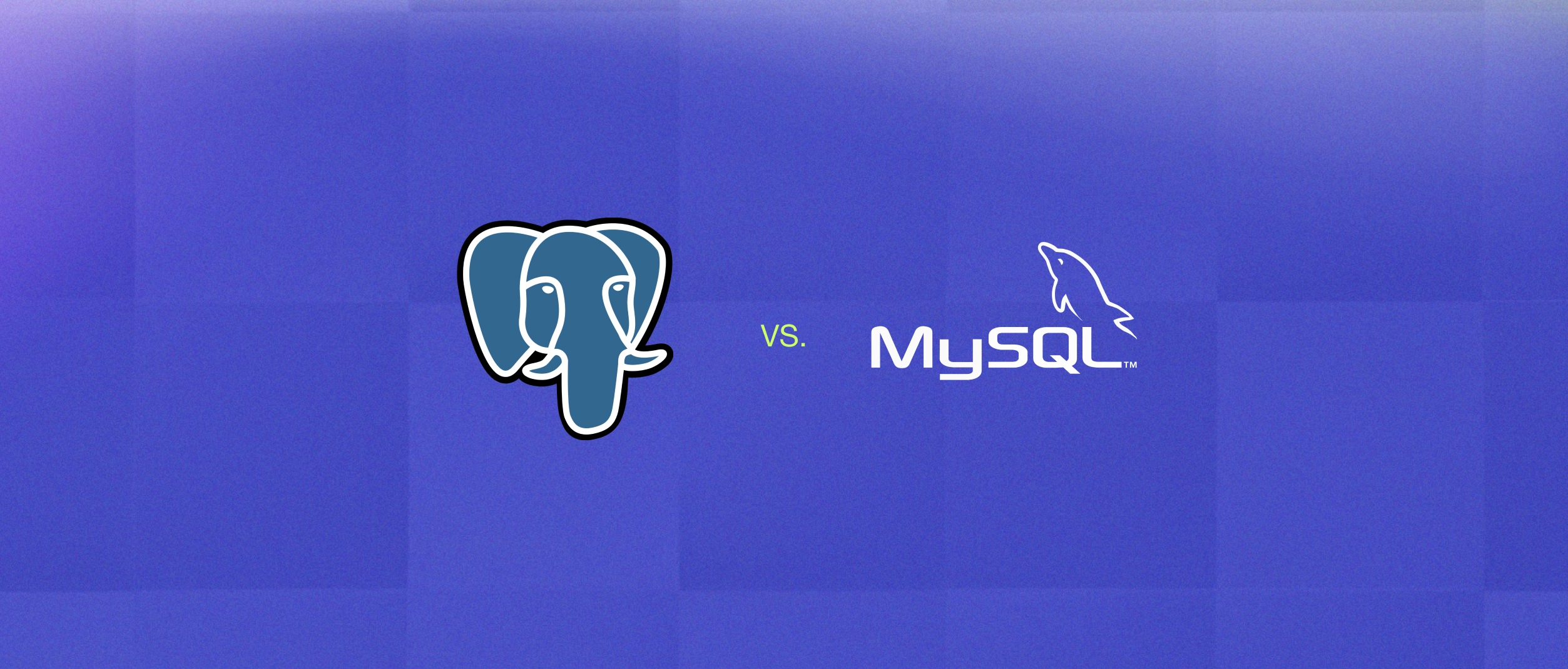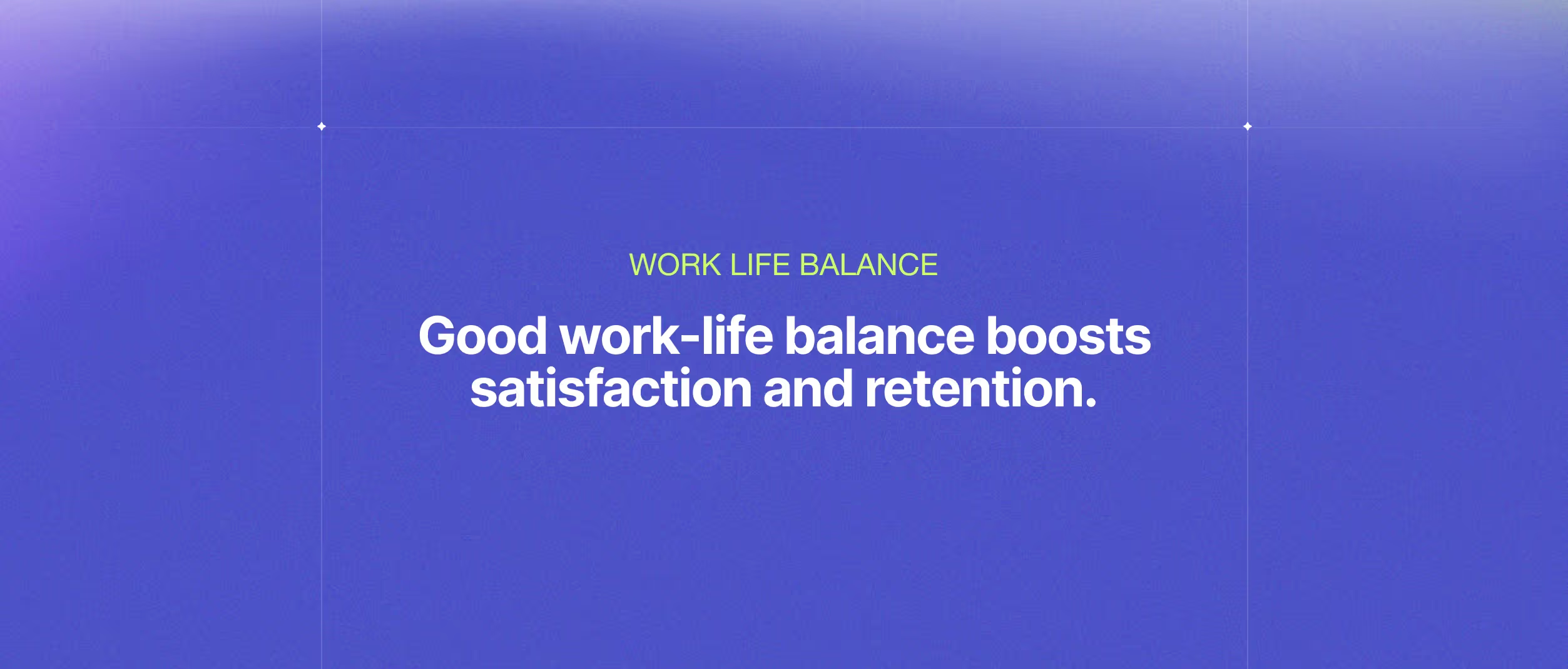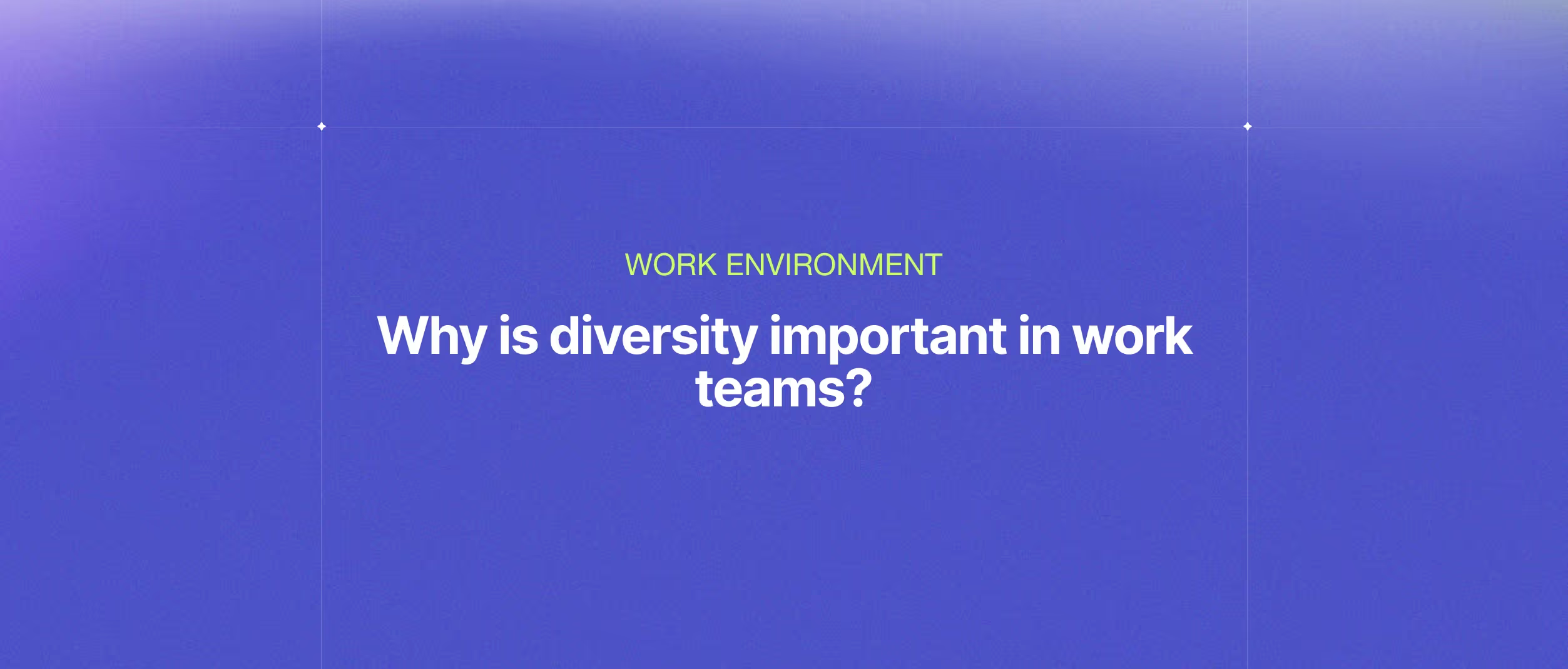PostgreSQL vs. MySQL: Differences and advantages

When starting a new project choosing a database management system is usually an afterthought, especially on web applications.
Most application frameworks have some object-relational mapping tool configured by default that hides the dissimilarities between the different platforms, making them all equally slow.
Comparing Postgres vs. MySQL
Postgres or MySQL, which is the better option? The answer depends on your application-specific requirements from back-end data infrastructure. Let's compare the most widespread databases — MySQL and PostgreSQL — across different application needs.
Database Architecture
PostgreSQL is designed as an object-relational database, while MySQL is strictly relational, translating to PostgreSQL offering more complex data types and allowing objects to inherit properties. Still, it also means working with PostgreSQL is more complicated.
While MySQL supports 16 different storage engines suitable for other use cases, PostgreSQL has a single ACID-compliant storage engine.
PostgreSQL creates a new system process with its memory allocation for each independent client connection it establishes. It requires a lot of memory on systems with many client connections.
On the other hand, MySQL employs a single process that maintains one thread (or path of execution) per connection, which performs well for most applications of less than enterprise scope.
Views, triggers, and stored procedures are the three standard database features, with PostgreSQL featuring more robust views and supporting materialized views, which can offer better performance for complex queries.
Both databases support standard SQL-stored procedures, but PostgreSQL boasts the ability to call procedures coded in languages other than SQL.
Data types
Postgres supports a broader variety of data types than MySQL, making it a better pick if your application requires dealing with any unique data types compatible with or unstructured data. Both databases will suit you if you only use essential character and numeric data types.
Indexes
Databases use indexes to speed up queries. With multiple indexing options, you can finely configure your database implementation as your data grows to get faster query responses and an improved user experience for your end users.
Security
Regarding security, the two have equivalent options as both database management systems support user and group management and offer the option of granting SQL privileges to roles defined at the engine level. PostgreSQL allows not only IP-based client filtering but also authentication using PAM and Kerberos, while MySQL supports PAM, LDAP, and native windows services for user authentication.
Support and documentation
You can judge each vendor's available documentation since you can find each online. Postgres needs more support engineers because a company needs to develop it, but its community support forums are excellent. MySQL offers similar forums and paid support plans you can buy from Oracle.
PostgreSQL vs. MySQL: Which Is Better?
Which of the two should you use to develop an application with a database back end? For applications expected to grow to enterprise scope, with complex queries and vast write operations, consider PostgreSQL.
If your development team is new to the world of databases and doesn't expect your application to scale up, or they're looking for a quick prototyping tool, give MySQL a try.
That's a good starting point, but there are other considerations. Your business's cloud platform provider might offer benefits when running one database over the other, the application framework your developers used to build your application might be better suited for one, or your fellow developers may have opinions.
MySQL is more widely used than PostgreSQL, meaning more developers and DBAs are well-versed in it, and more third-party tools are available. And, of course, Postgres and MySQL aren't the only two database choices; they're not even your only two open-source database choices.
Database Performance
Historically, MySQL has had a reputation as a high-speed database for read-intensive workloads, often at the expense of concurrency when mixed with write operations.
PostgreSQL, or Postgres, is "the most advanced open-source relational database in the world." Postgres is built to be feature-rich, extendable, and standards-compliant, but its performance was more balanced in the past - reads were generally slower than MySQL.
Still, it could write large amounts of data more efficiently and handle concurrency better.
Recent versions have primarily erased the performance differences between MySQL and Postgres. MySQL is still swift at reading data, but only if using the old MyISAM engine. If using InnoDB (which allows for some essential features), differences are negligible if present.
On the other hand, MySQL has been updated to reduce the gap regarding heavy data writes. When deciding between MySQL and PostgreSQL, performance should be a minor aspect for most common use case applications.
In either case, it will be performant enough, even if you consider expected future growth. Both platforms can be replicated, and many cloud providers offer scalable versions of either database.
Postgres Advantages over MySQL
Postgres is an object-relational database which means that Postgres has features like table inheritance and function overloading, which can be crucial to specific applications while also adhering more closely to SQL standards. Postgres handles concurrency better than MySQL for multiple reasons:
Postgres implements Multiversion Concurrency Control (MVCC) without read locks. Postgres supports parallel query plans that can use multiple CPUs/cores.
Postgres can create indexes in a non-blocking way (through the CREATE INDEX CONCURRENTLY syntax), and it can create partial indexes (for example, if you have a model with soft deletes, you can create an index that ignores records marked as deleted).
Postgres is known for protecting data integrity at the transaction level; This makes it less vulnerable to data corruption.
Default Installation and Extensibility of Postgres and MySQL
The default installation of Postgres generally works better than the default of MySQL (but you can tweak MySQL to compensate). MySQL has some weird default settings (for example, character encoding and collation).
Postgres are highly extensible. It supports many advanced data types unavailable in MySQL (geometric/GIS, network address types, JSONB, which can be indexed, native UUID, and timezone-aware timestamps). You can add your datatypes, operators, and index types if needed.
Postgres is open-source and community-driven, while MySQL has had some licensing issues. It was started as a company product (with a free and a paid version), and Oracle's acquisition of MySQL AB in 2010 has led to some concerns among developers about its future open-source status. However, several open-source forks of the original MySQL (MariaDB, Percona, etc.) exist, so this is not considered a massive risk.
Extracting database data for BI
Both PostgreSQL and My SQL are operational databases designed for transaction processing and not for analytics.
To get a comprehensive view of your business, transactional data should be extracted from your PostgreSQL or MySQL database and fed into a data warehouse, which can be consumed by your data analytics and business intelligence (BI) platforms.
Extracting, synchronizing, and integrating data across an enterprise is a complex problem requiring strenuous effort.
When to Use MySQL
Even if Postgres has all these advantages, consider some minor drawbacks to using it instead of MySQL. Despite catching up in recent years, Postgres remains less popular than MySQL, so developers and database administrators have fewer third-party tools available.
Postgres creates a new process for each new client connection, allocating a substantial amount of memory. PostgreSQL is built with compliance, scalability, and data integrity as its primary objectives, sometimes at the expense of speed. Therefore, Postgres might be a worse choice for simple, read-heavy workflows than MySQL.
These are only some factors a development team might want to consider when designing an architecture and selecting the right database technology.
Additionally, your platform or cloud provider might prefer a specific type of database; your framework may choose one over the other by providing better drivers, and, as always, your coworkers may have opinions!
Conclusion: Which is better, MySQL or PostgreSQL?
After comparing both, MySQL has done a great job of improving itself to stay relevant. Conversely, PostgreSQL doesn't need licensing; it offers table inheritance, rules systems, custom data types, and database events. So, it certainly edges above MySQL.
By comparing PostgreSQL vs. MySQL, it's clear they're very different, but which of the two database management systems should you use for your project? Fortunately, the answer is simple. Use PostgreSQL if you have special database requirements. Where that's not the case, MySQL is sufficient.
For small to medium web projects, MySQL is the better choice. The RDBMS is less demanding in terms of server resources. It's easier to find an experienced and affordable MySQL admin. Strong performance when reading data means it's a good option for websites and small online stores.
Lastly, it should be noted that PostgreSQL and MySQL can be used in tandem; This is particularly attractive for data warehousing solutions. Usually, one or more outward-facing MySQL instances are used in such a setup. They collect data and pass it to a central PostgreSQL installation running evaluations and analyses.
Need help deciding whether to use PostgreSQL or MySQL for your business's needs in 2023? Feel free to get in touch with us today!
Other Blog Posts

Work-Life Balance: The Solution to High Turnover of Software Engineers?

Why hire Latin American Developers for your business?







